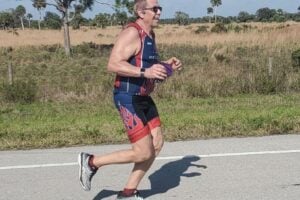It was a couple of days after traveling when I first noticed something wasn’t right. I had switched birth control pills within the last several months. At my first conference talk after COVID, I realized mid-presentation that I couldn’t quite get through full sentences without pausing for breath. I told myself it was just nerves. Even at the gym that week, I felt more fatigued than usual — nothing alarming, just off.
When I got home, I noticed it again walking up stairs, and then during a mountain-bike ride, it became undeniable. I was short of breath riding from the parking lot to the trailhead, and my heart rate had jumped to 130 — much higher than normal for that effort. I sat down, felt a dull ache in my calf that I’d ignored earlier in the week, and suddenly it all clicked. I likely had a DVT and pulmonary embolism.
 Even then, I hesitated to go to the hospital. It didn’t feel “that bad,” and I worried I’d be embarrassed if it was nothing. It wasn’t nothing. I was admitted and underwent a thrombectomy for a significant pulmonary embolism.
Even then, I hesitated to go to the hospital. It didn’t feel “that bad,” and I worried I’d be embarrassed if it was nothing. It wasn’t nothing. I was admitted and underwent a thrombectomy for a significant pulmonary embolism.
Looking back, I realize how easily this could have been missed — especially in athletes. My resting heart rate was only in the 90s, higher than normal for me but not technically “tachycardic,” and I never had chest pain. That’s what makes it so unsettling: the symptoms can be incredibly mild.
In a recent Stop the Clot video, Tatyana McFadden talked about how hard it was to return to activity — and I really relate to that. I underestimated how difficult it would be to get back to endurance exercise. I’m used to being in shape, and even though I didn’t take much time off, it took me nearly a year to get back to where I was before it happened.
Even now, I still have to fight the panic that comes with shortness of breath, especially during mountain-bike races. I know it’s probably not another PE, but that fear still lives in my body.
It’s normal to feel anxious and uncertain after a clot. I got better with time—and therapy helped most.
Resources
Preventing Travel-Related Clots
Athletes and Blood Clots
Psychological Impact of Blood Clots
PEP Talk




